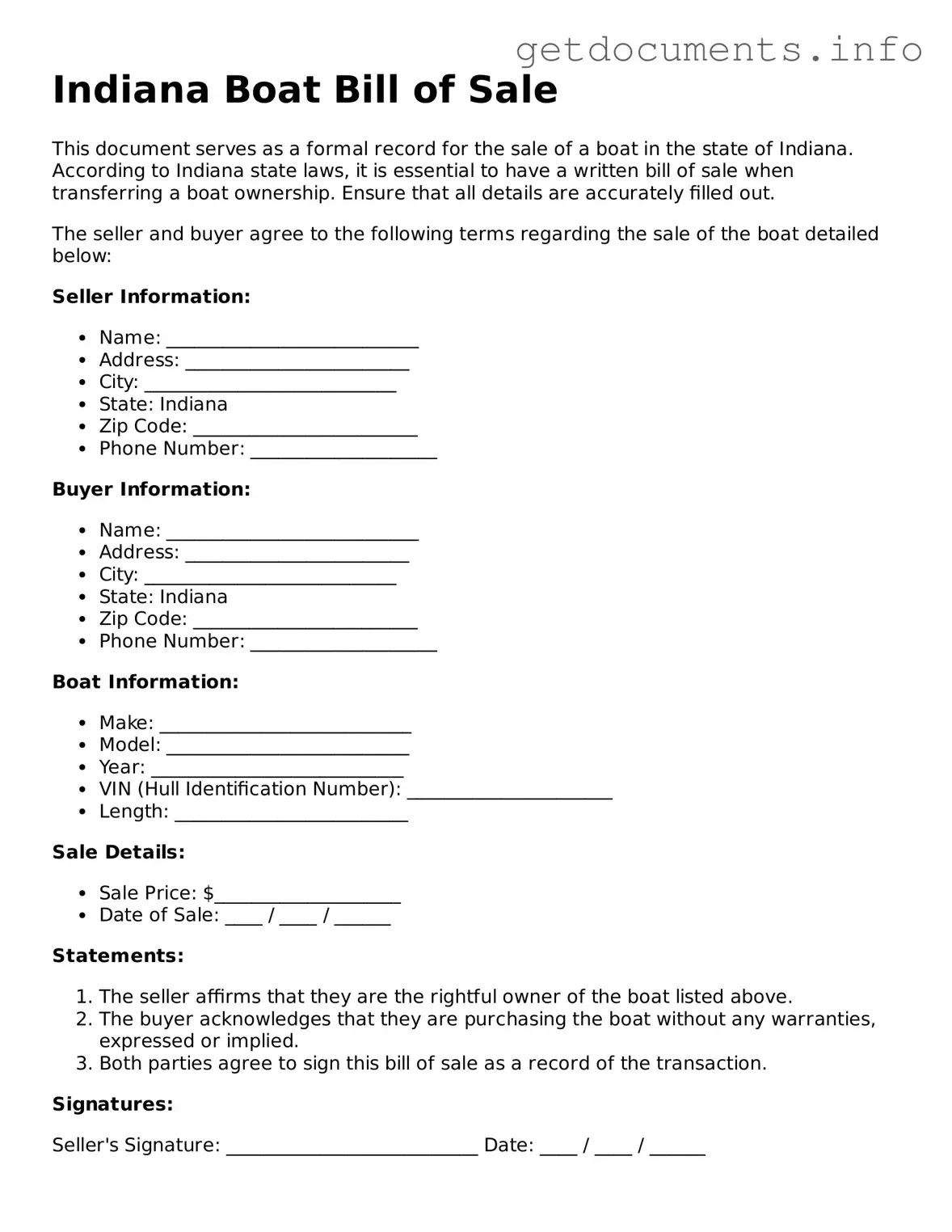Free Boat Bill of Sale Template for Indiana
The Indiana Boat Bill of Sale form is a crucial document that records the transfer of ownership for a boat between a seller and a buyer. This form not only protects both parties but also serves as proof of the transaction for future reference. Ensure a smooth transfer by filling out the form accurately; click the button below to get started.
Access Boat Bill of Sale Editor

Free Boat Bill of Sale Template for Indiana
Access Boat Bill of Sale Editor
Got places to be? Complete the form fast
Fill out Boat Bill of Sale online and avoid printing or scanning.
Access Boat Bill of Sale Editor
or
⇩ PDF File
